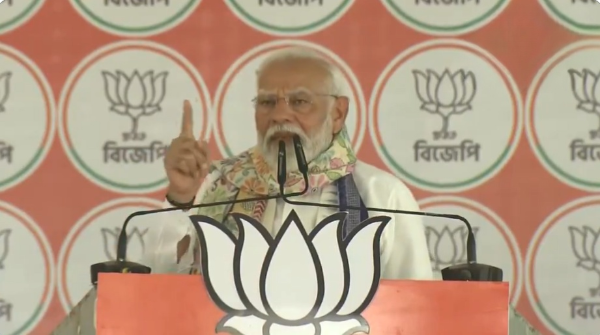The political landscape of West Bengal continues to be a battleground of rhetoric and accusations, with recent remarks by Prime Minister Narendra Modi adding fuel to the already fiery discourse. However, amidst the tumult of political polarization, there is a growing chorus calling for a return to civility, dialogue, and unity.
PM Modi’s criticism of the opposition for allegedly fostering divisive politics has drawn sharp reactions from various quarters, reflecting the deeply entrenched divisions within the state’s political arena. While political parties engage in verbal sparring, citizens are left grappling with concerns about the erosion of communal harmony and the neglect of pressing issues affecting their daily lives.
In response to the escalating tensions, there is a palpable sense of fatigue among the populace, who are weary of the incessant cycle of accusations and counter-accusations. Many citizens are calling for a shift in focus towards substantive issues such as healthcare, education, and job creation, which have taken a backseat amidst the political bickering.
“We want our leaders to address the real issues that matter to us,” voiced a concerned resident. “It’s time for them to put aside their differences and work together for the betterment of our state.”
Civil society organizations are also stepping up efforts to promote dialogue and understanding among different communities. They emphasize the importance of fostering a culture of inclusivity and mutual respect, which they believe is essential for the long-term stability and progress of West Bengal.
“We cannot allow politics to divide us along religious or ideological lines,” remarked a representative of a local advocacy group. “It’s only through unity and cooperation that we can overcome our challenges and build a better future for all.”
As the state braces for upcoming elections, there is a growing sense of urgency for political leaders to rise above partisan interests and engage in constructive dialogue. The onus is on them to demonstrate leadership by prioritizing the welfare of all citizens and working towards common goals that transcend narrow political agendas.
In the midst of political turmoil, West Bengal stands at a crossroads. The choices made by its leaders today will shape the future trajectory of the state. Now more than ever, there is a pressing need for unity, dialogue, and a shared commitment to building a brighter and more inclusive tomorrow.



